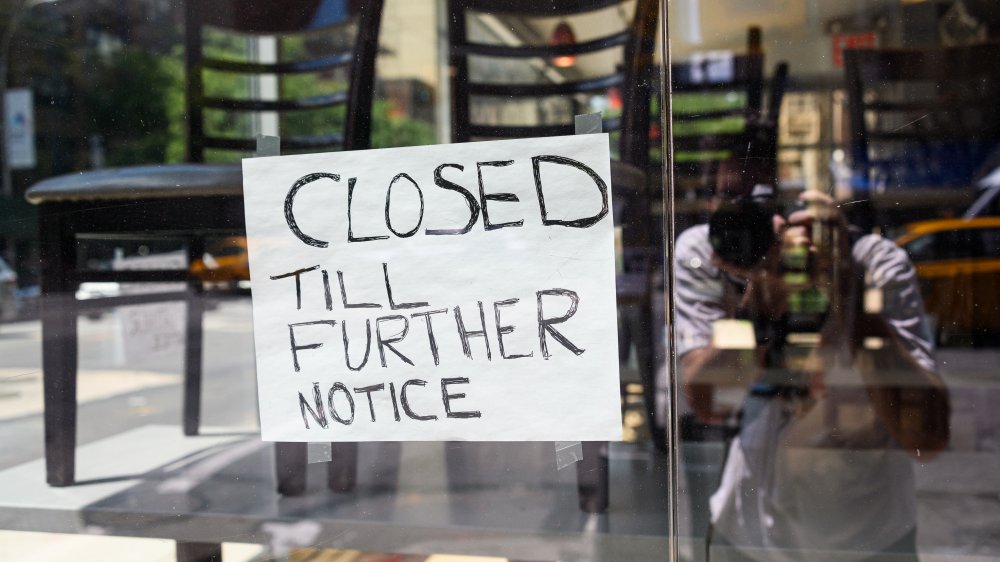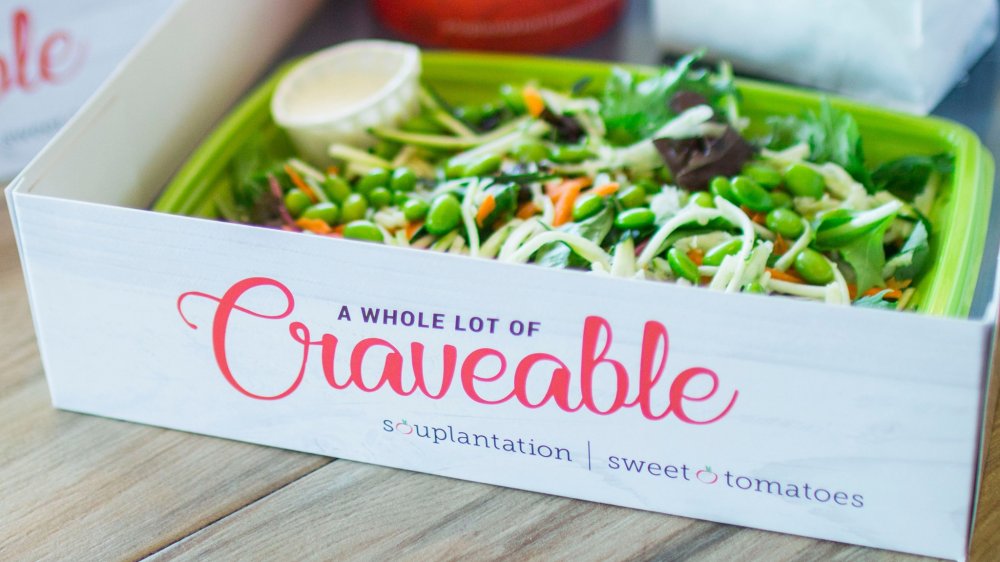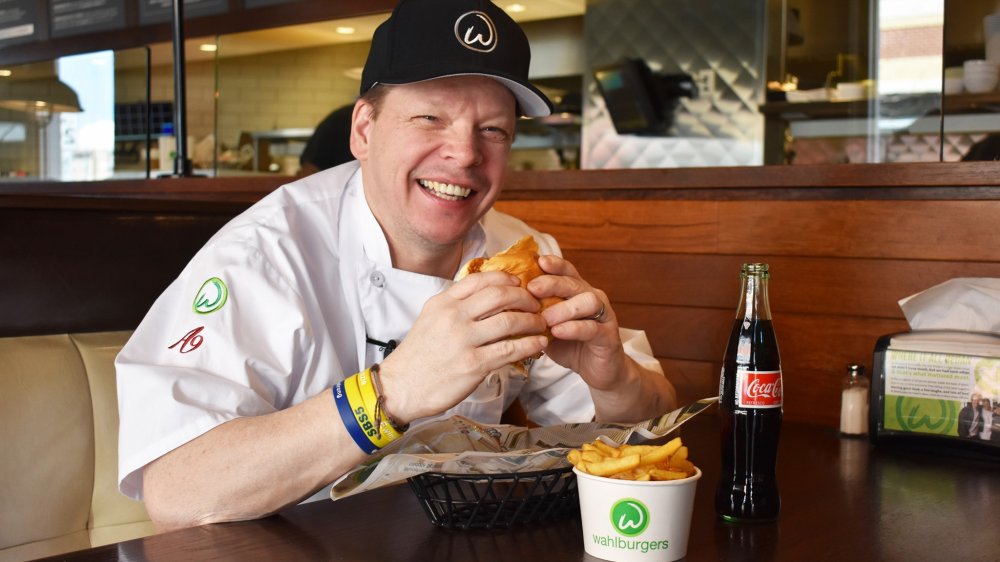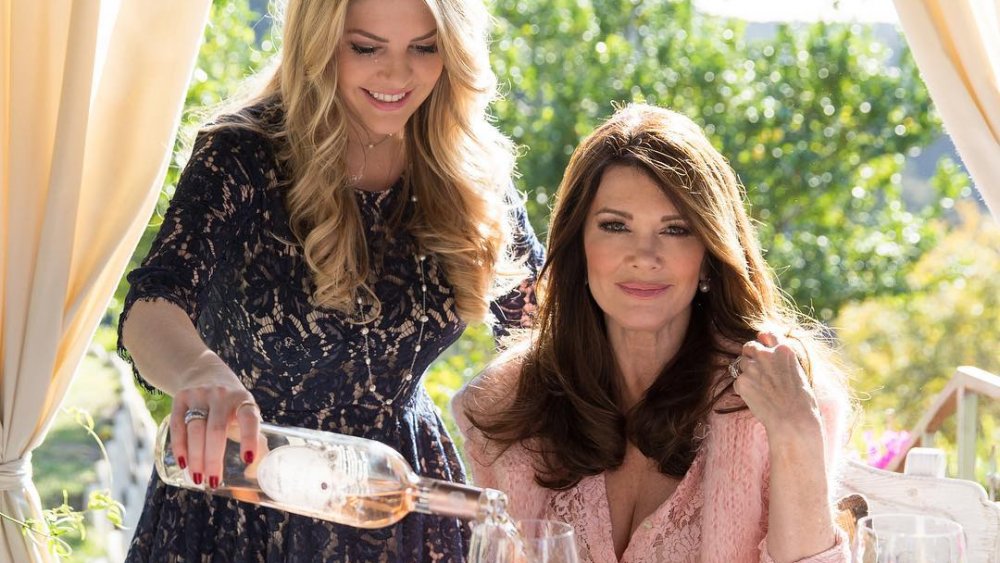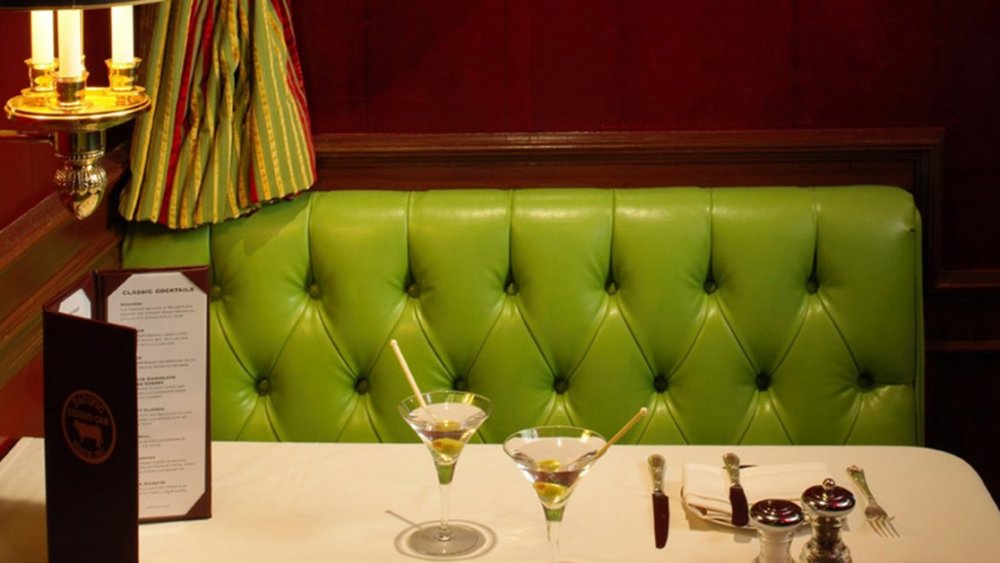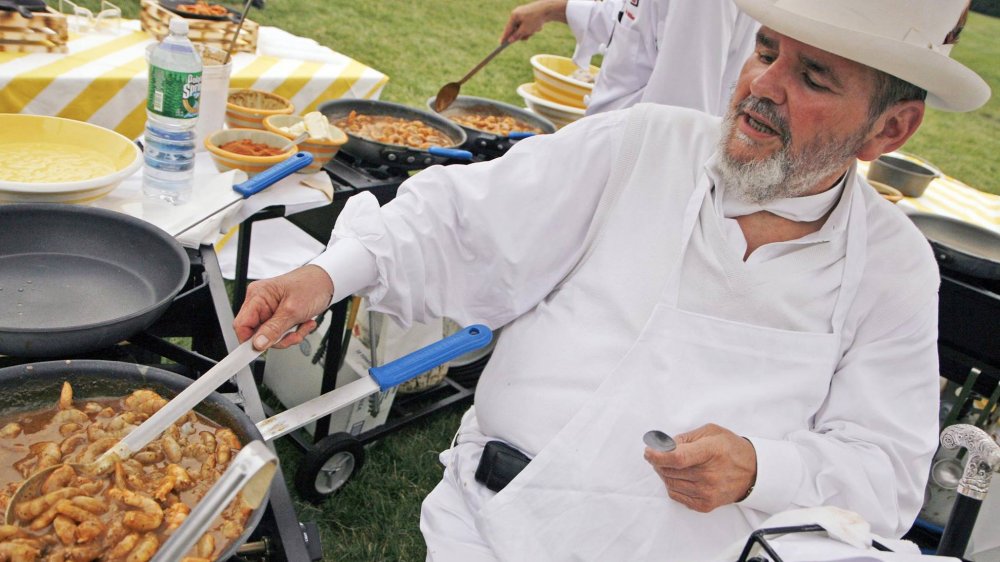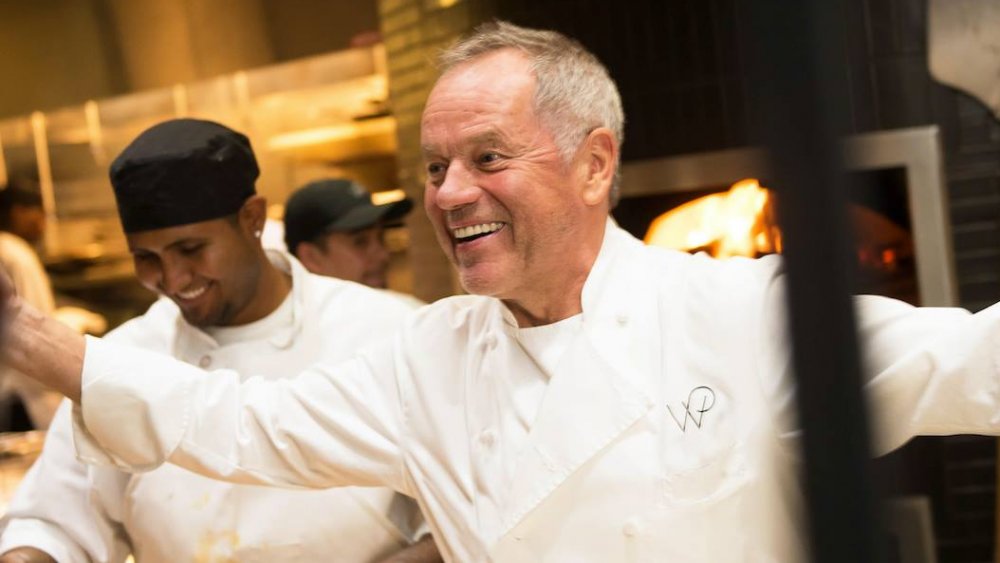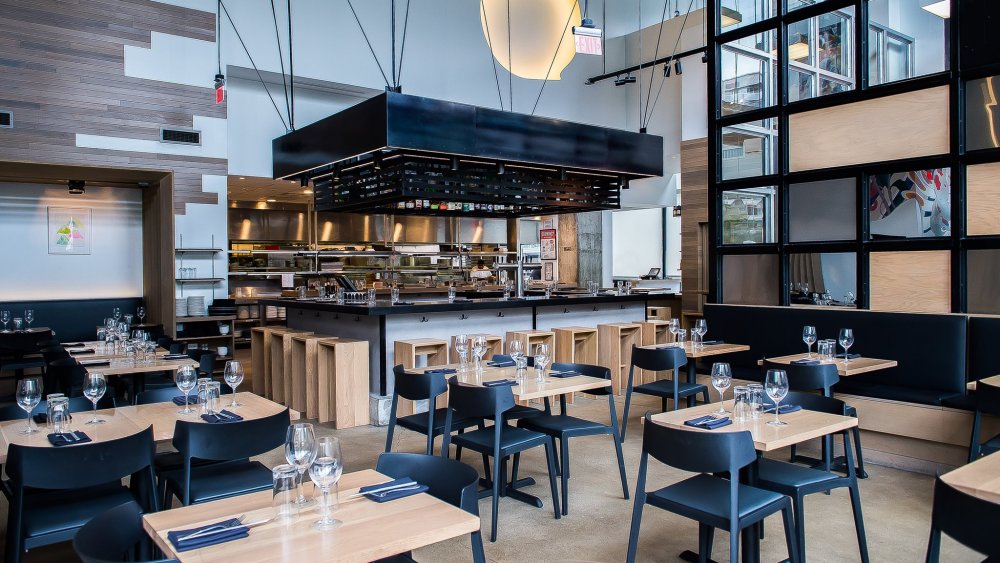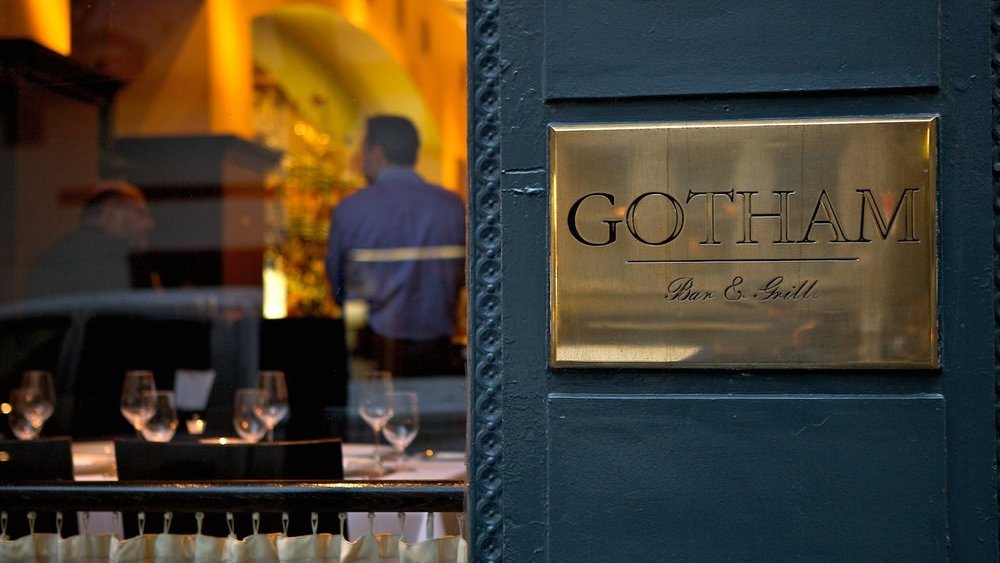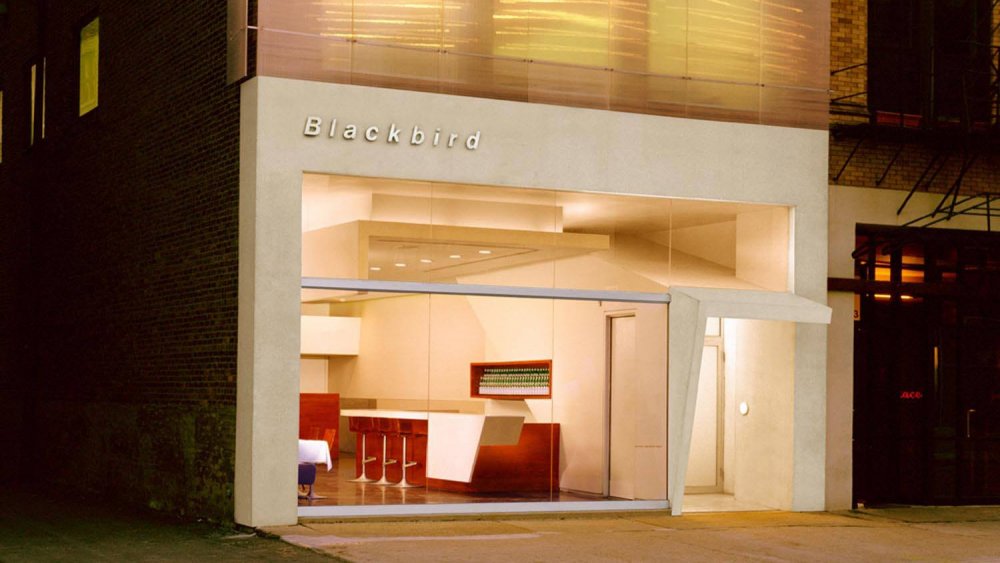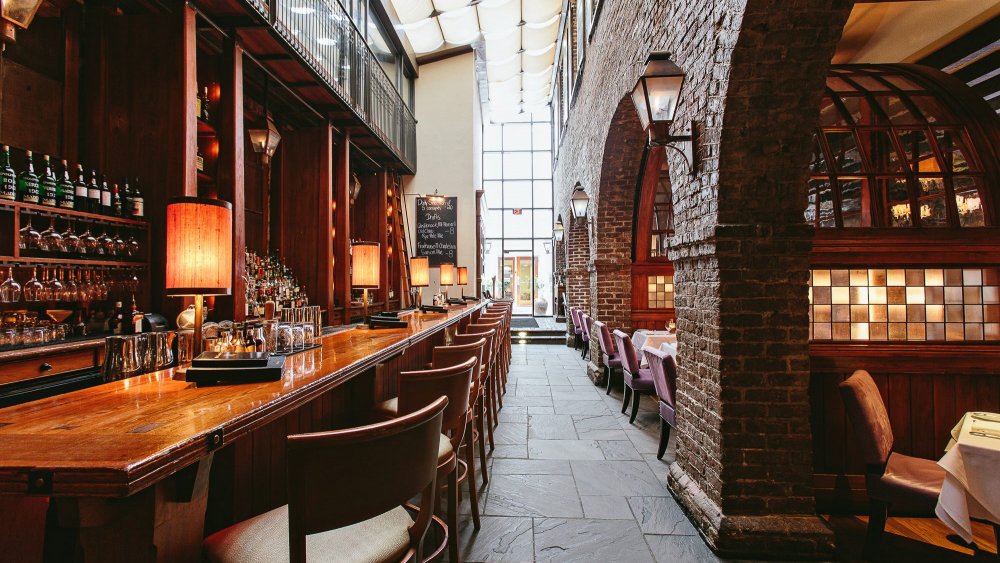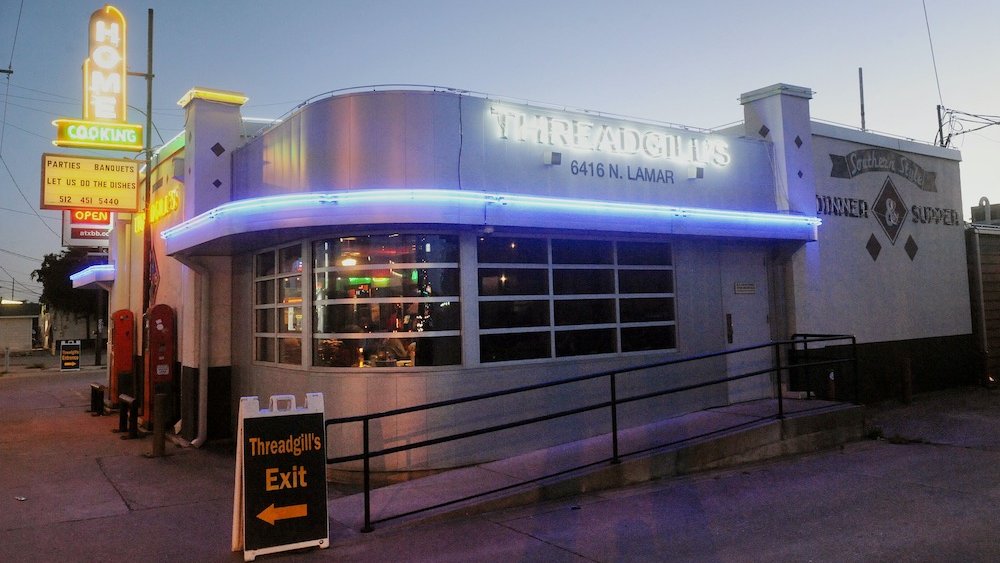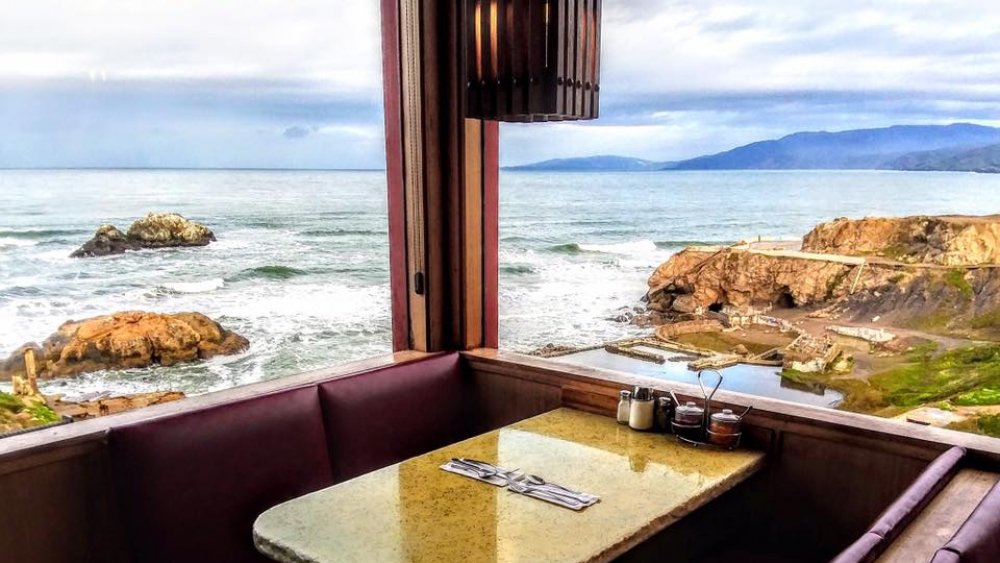Restaurants That Are Going Out Of Business Due To The Pandemic
COVID-19 has hit all businesses hard, but few have been as pummeled as the restaurant industry. Although some chains have suffered, according to Forbes, mammoths such as McDonald's, Domino's, and Taco Bell "have gone on massive hiring sprees."
Independent restaurants have been particularly hammered. According to Business Insider, 70 percent of all restaurants are independently owned. The same article cites an Independent Restaurant Coalition prediction that up to 85 percent of independently-owned establishments will permanently shutter their doors by the end of 2020.
Straits are particularly dire because independents depend more heavily on dine-in revenue than chains. They also lack corporate funds to sustain them during an ongoing period of epic-scale losses. Looking towards a post-pandemic future offers little respite. Most owners believe it will take a long time for business to return to the old normal.
And so, with great sadness, we're seeing the demise of our favorite restaurants. The trendy and the traditional. The comforting and the cutting edge. Some of the restaurants listed below are old school institutions. Others led radical foodie revolutions. A few of them put their cities on the culinary map. The only certainty is that they'll all be missed.
These are the restaurants that are going out of business due to the pandemic, so far.
Souplantation & Sweet Tomatoes all over the U.S.
Souplantation opened its first San Diego restaurant in 1978, back when all-you-can-eat salad bars and self-service buffets were all the rage. With a focus on home-style soups and fresh salads, the chain spread throughout California before expanding into the southern U.S., under the name Sweet Tomatoes.
Even before most restaurants began closing down to contain the spread of COVID-19, Garden Fresh Corporation, which had owned the chain since 1983, was being proactive. On March 10, CEO John Haywood temporarily shuttered all Souplantation and Sweet Tomato locations, promising to reopen as soon as possible.
Unfortunately, the possibilities of an all-you-can-eat buffet staying alive in the age of COVID were close to nil given federal recommendations against self-service operations. Even once reopening was underway, customers were sure to be squeamish about mingling at the communal 50-foot salad bar. Meanwhile, the restaurants' signature concept couldn't be adapted to either table service or delivery.
As Haywood confessed to Restaurant Business, revenues were plummeting as the company spent more than $1 million per week, even with their doors closed. With no reprieve on the horizon, Haywood admitted in May that the temporary closure would be permanent. In one fell swoop the company shut down all 97 Souplantation and Sweet Tomatoes locations, leaving 4,400 workers unemployed and marking the end of the beloved chain's salad days.
Wahlburgers in Orlando
Equally renowned for its owners as well as its burgers, the Boston-based Wahlburgers franchise was started by chef Paul Wahlberg and his more famous siblings, Mark and Donnie Wahlberg, both of whom cut their teeth as boy band wonders, (respectively of Marky Mark and Funky Bunch and New Kids on the Block), before becoming actors and, more staidly, restaurateurs. Since opening their first location in Massachusetts, in 2011, the trio has watched their chain mushroom. There are currently close to 40 locations throughout the U.S. as well in Canada and Germany.
In 2016, the first Florida Walhburgers opened in downtown Orlando. The inauguration was feted with considerable pomp and paparazzi, which included a block party and cameo appearances by two out of three Walhberg brothers. A second Waterford Lakes location followed in 2017, with plans to grow the number of Florida outposts to 20.
Burger business was booming until the coronavirus began to hit Florida hard. According to Wahlburger's web site, the majority of its restaurants throughout the country are either partially open or temporarily closed. However, on June 25, ClickOrlando.com reported that the franchisee for the downtown Wahlburgers had "made the difficult decision to permanently close its doors." Less than a month later, the Waterford Lakes restaurant announced that it had served its final burger. With that closing one-two punch, the Sunshine State is now bereft of Wahlburgers.
Villa Blanca in Los Angeles
On the opposite end of the celebrity food chain from Wahlburgers is Villa Blanca. The Beverly Hills eatery is one the glitziest jewels in the compact, but blingy restaurant empire of multi-hyphenate actress and entrepreneur Lisa Vanderpump and her husband Ken Todd. The couple inaugurated Villa Blanca in 2009, a year before Vanderpump was catapulted into the reality star firmanament as an original cast member of The Real Housewives of Beverly Hills.
An unofficial RHOBH clubhouse, Villa Blanca was popular with celebrity gawkers and fans of Lisa's spin-off show, Vanderpump Rules. Customers tended to linger over vaguely Mediterannean salads and carpaccios, hoping to catch sight of "LVP" and "the Housewives" swigging rosé and nibbling avocado tartare.
In March, Vanderpump temporarily closed all her restaurants. But when she decided to permanently shutter Villa Blanca, the celebrity news machine went into overdrive. Among the most contagious rumors was that the restaurant was in financial straits following a sexual discrimination lawsuit.
In a Daily Mail interview, the star dissed the "many untrue articles," claiming the real reason for closing was a lethal combination of a rent hike paired with the pandemic. Vanderpump hopes to resurrect Villa Blanca in the future. But for now she's focused on reopening her other West Hollywood restaurants, where she intends to transfer many Villa Blanca employees. In the meantime, according to UsFood, she's making the best of home-quarantine by filming "A Very Silly Cooking Show," with her daughter, Pandora.
Pacific Dining Car in Santa Monica
Los Angeles was still a backwater in 1921 when Pacific Dining Car opened for business inside a reconfigured railroad dining car. At the time, PDC's signature special sirloin cost a whopping 65 cents and a coveted slice of homemade pie would set you back another 20 cents. The aged-on-the-premises prime steaks and cozy leather booths were a hit with the Hollywood set, luring early screen stars such as Mae West and George Raft along with a pungent mix of politicos and prostitutes, stock brokers and hustlers.
PDC had morphed into a venerated LA institution by 1990, when the family owners decided to establish a second outpost in Santa Monica. Open 24/7, just like the mother ship, the new location attracted a motley mishmash of LA types seeking late-night lobsters and baseball steaks (immortalized in the film Training Day) as well as (very) early morning eggs.
In truth, PDC's chefs were known to make customers anything they asked for. For this reason alone, regulars were dismayed on June 16th when it was announced via Instagram that the Santa Monica location was closing as COVID-19. According to Eater LA, the 24-hour service that made it such a compulsive after-hours haunt proved to be a particularly difficult model to sustain. The only upside for regulars was the bittersweet possibility of owning a piece of PDC furniture, tableware, artwork or piece of kitchen equipment by bidding in an online auction.
K-Paul's Louisiana Kitchen in New Orleans
With pioneering chef Paul Prudhomme's death in 2015, many feared for the future of his legendary New Orleans restaurant, K-Paul's Louisiana Kitchen. As an Eater obituary noted, "Prudhomme's name may not have made it as far and wide as Wolfgang Puck's, but the two chefs share the distinction of being the first-ever celebrity chefs in the United States."
When Prudhomme and his wife Kay (the "K" in K-Paul's) opened their French Quarter restaurant in 1979, few imagined that their unpretentious neighborhood establishment would be ground zero of a major Cajun and Creole food revolution. As food journalist Ian McNulty told NPR, "in a city famous for restaurants, [K-Paul's] really stood out ... tak[ing[ the food of the Louisiana countryside and mak[ing] it this worldwide obsession."
In the years that followed, nightly throngs lined up outside K-Paul's, with pilgrims vying to taste signature dishes such as blackened redfish, sweet potato pecan pie, and the acrobatic feat that is a duck-stuffed-in-a-chicken-stuffed-in-a-turkey, aka turducken.
According to NcNulty, after Prudhomme's death, K-Paul's was in "good shape" with Pruhomme's niece running the restaurant and her husband taking over chef duties. But then "COVID comes in, flips the market upside down, and they didn't see a way forward," particularly with tourism plummeting. On July 13, K-Paul's demise was breaking news and it broke many hearts. Inconsolable fans my take some comfort in the legion of Prudhomme cookbooks and TV series that survive, as well as his namesake Creole-Cajun seasonings.
Wolfgang Puck's The Source in Washington D.C., and Five Sixty in Dallas
America's other "first-ever superchef," Wolfgang Puck, has also fallen on hard pandemic times with the recent shutterings of The Source and Five Sixty (whose websites have subsequently vanished). This double-whammy is all the more shocking considering the size and heft of Puck's business empire. With 110 fine dining and casual restaurants in addition to catering and licensing deals, his total annual revenues were estimated to be around $650 million, in 2018.
Five Sixty opened in 2009, at the top of Dallas' iconic Reunion Tower (the restaurant's name refers to its height of 560 feet above ground level). Dining on dumplings and lacquered Chinese duckling with the spectacular view quickly became "a Dallas rite of passage," one that sadly came to an end in late April with the news that "due to the Coronavirus, Five Sixty by Wolfgang Puck will not reopen."
In mid-May, Puck's D.C.-based The Source followed suit after 13 years in business. The Asian fusion restaurant had marked Puck's initial foray into the nation's capital. A DC power dining hotspot, The Source spearheaded a changing of the culinary guard, weaning locals off staid steakhouses and onto the izakaya bar grub that made The Source a perennial favorite.
The closings have taken their toll on Puck who confessed to The Hollywood Reporter that he'd been stress-eating a lot of chocolate, admitting, "I think I've gained 10 pounds these past few weeks."
Momofoku Nishi in NYC and CCDC in Washington D.C.
David Chang is another celebrity restaurateur who suffered a double dose of coronavirus closures. In the aughts, Chang's Momofuku restaurant group caused a small tsunami in the restaurant industry. Chang's disarming mix of lo-fi and high-end elements blurred the lines between fine dining and fast casual. As chef Michael Solomonov told the Robb Report, "David Chang opening Momofuku changed the way we all experience restaurants now."
And yet, as Eater noted, despite "a billionaire investor, an international footprint, and the name recognition of one of the country's most celebrated chefs of the past two decades," Momofuku hasn't been immune to the onslaught of COVID. On May 13, the group — which owns 16 restaurants and two multi-city chains — announced the closure of Momofuku Nishi in NYC and Momofuku CCDC in Washington, D.C.
"As we looked at new realities neither restaurant had enough cushion to sustain the shock of this crisis," a Momofuku representative said, in a statement posted on their website. Despite negotiations with landlords and attempts to tweak its service models, keeping the restaurants open "no longer made sense."
As for Chang, according to the Robb Report, during a tearful podcast he confessed that he was, "still at war with this decision ... From a cerebral level I definitely understand it. From an emotional level, it's never quit, ever."
Gotham Bar & Grill in New York City
Upon opening its Greenwich Village doors in 1984, Gotham Bar & Grill became the template for a new kind of fine American dining, in which French elegance collided with a New American cuisine celebrating seasonal, local ingredients (a radical concept at the time). Under the helm of cutting-edge chef Alfred Portale, the restaurant tirelessly racked up rave reviews and multiple Michelin stars. Portale earned particular renown for sculpting his dishes vertically.
Until 2019, "Gotham without Alfred Portale was as hard to imagine as Cuba without at least one Castro," wrote Pete Wells in The New York Times. Wells' review came upon the heels of Portale's departure and the arrival of his successor, Victoria Blamey. Hired to usher in a new era and new crowd, Blamey's tenure was greeted with mixed reactions from reviewers and decampments from Portale loyalists. Blamey's plating style was deemed by Wells to be "stark" even while he admired her culinary daring. Perhaps sensing doom, he observed that Gothams '80s-era decor wasn't exactly Instagram-friendly.
Blamey barely had time to get into a groove when COVID-19 hit NYC. As restaurants began temporarily shutting down, Gotham announced that due to the unforeseen situation created by the coronavirus, it would be serving its last supper on March 14. In doing so, it became as Zagat noted, an early restaurant victim of coronavirus closures.
Blackbird and Café Cancale in Chicago
Before Blackbird, casual fine dining was a rarity in the Midwest. The brainchild of bartender Donnie Madia and nightclub doorman Ricky Diarmit, who teamed with up-and-coming Chicago chef Paul Kahan, the West Loop restaurant broke countless molds while garnering multiple Michelin stars. Occupying a deserted strip, the sleek minimalist box featured raucous music and tables one blog described as "so close, that if you sat wrong, you might be accused of committing battery." The refined, but unpretentious menu trafficked in seasonal ingredients from Illinois farmers, prepared with French panache.
From its 1997 opening, Blackbird almost single-handedly jumpstarted the Chicago restaurant scene. It also became the foundation for One Off Hospitality, the city's premier restaurant group, whose partners included Kahan, Madia, and Diarmit. One Off's most recent opening, in 2019, was Café Cancale, an French-inspired oyster bar, helmed by Kahan after he exited his executive chef duties at Blackbird.
Sadly, Blackbird's very closeness proved to be its downfall in pandemic times. On June 30, the Chicago Tribune declared the coronavirus had claimed a this well-known Chicago restaurant. As Madia explained, "Think of what 6 feet of social distancing means to Blackbird, and then how do you operate a 14-by-9 kitchen?" The same week, One Off also announced the permanent closing of Café Cancale.
It was an emotional week for Chicagoans. As restaurateur Kevin Boehm noted in an Instagram post, "the restaurant world has taken quite a few hits the last few months, but this one is a Joe Frazier left hook."
McCrady's and Minero in Charleston
McCrady's has enjoyed many lives. Edward McCrady's tavern first opened in 1778, where it was a hub of post-Revolutionary social life in downtown Charleston, and illustrious customers included George Washington. Centuries later, in 1993 McCrady's reopened as a restaurant, which went through multiple phases, and chefs, until 2006 when along came Sean Brock.
Schooled in Catalan chef Ferran Adrià's culinary deconstruction, Brock transformed McCrady's kitchen into a molecular gastronomic lab where he carried out unorthodox experiments using local line-caught catfish, pasture-raised pork, and herbs and edible flowers raised on the roof. In doing so, Brock single-handedly put Charleston on the culinary map while leading a hard-core revival of Southern cooking known as "lardcore."
Described by Eater as "the city's leading culinary voice," Brock was involved in a handful of celebrated Charleston eateries owned by the Neighborhood Dining Group. Among them was Minero, a casual taco joint located above McCrady's that opened in 2014. NDG continued to preside over this micro-empire even after Brock left town, in 2018, for greener culinary pastures in Nashville.
Although McCrady's survived Brock's departure, two years later, COVID-19 brought its multiple lives to a definitive end in late April. According to NDG president David Howard, the multi-course, tasting-menu-only setup, in an intimate 18-seat dining room, would no longer be viable in a post-corona world. In the same press release, Howard also announced that the downtown location of Minero would also close its doors.
Threadgill's in Austin
In 1933, an Austin bootlegger, country singer, and yodeler named Kenneth Threadgill celebrated the end of Prohibition by standing in line all night to be the first person in the country to get a beer license. He then transformed the Gulf gas station he'd acquired into an after hours bar for musicians. Threadgill's was on its way to becoming a local institution by the mid-'60s when a University of Texas student by the name of Janis Joplin started playing blues on her autoharp on folk nights.
Threadgill's had fallen on hard times by 1981, when Eddie Wilson scooped it up. A music promoter with hippie leanings, Wilson transformed the iconic Austin building into a music venue and restaurant featuring his mother, Beulah's, Southern comfort food. As Austin journalist Joe Nick Patoski recalls, aside from serving the best chicken fried steak in town, you could order a full plate of vegetables, which "was kind of radical."
In recent times, however, business had soured with Austinite foodies increasingly forsaking Beulah's meatloaf for the more fusion-y likes of Asian/smokehouse. When the pandemic struck, Wilson decided it was time to retire. In mid-April, he put Threadgill's up for sale and its collection of musical memorabilia up for auction.
I've been in a lot of roll-around and tumbling brawls, but I've never been this old," the 76-year-old Wilson confessed to the Austin American-Statesman. "This whole pandemic has been like a kick in the gut that bent me over."
Louis' Restaurant in San Francisco
In 83 years of business, Louis' Restaurant survived its share of near disasters. Perched upon rugged cliffs overlooking the Pacific, the San Francisco diner was established in 1937 by Greek immigrants Louis and Helen Hontalas who rented a small but scenic piece of land from the nephew of Adolph Sutro. A self-made millionaire and former San Francisco mayor, in 1894, Sutro had opened the extravagant ocean pool aquarium known as Sutro Baths on the site. With passing years, Louis' became a popular getaway-with-a-view, where customers could enjoy burgers (more recently made from locally-sourced, vegetarian-fed beef) while sighting whales and dolphins.
In 1973, the National Park Service acquired the land and Louis' became part of the Golden Gate National Recreation Area. According to its website, over the decades, Louis' narrowly escaped raging fires, revocations of its concession contract, and outright obliteration (it was saved by a letter-writing campaign).
Yet on July 13 this third-generation San Francisco institution finally closed its doors, stating on Facebook that "to wait out this pandemic was financially unreasonable." Co-owner Tom Hontalas, grandson of Louis and Helen, confessed to NBC that breaking the news to his staff was heartbreaking. "We couldn't even hug our staff."
